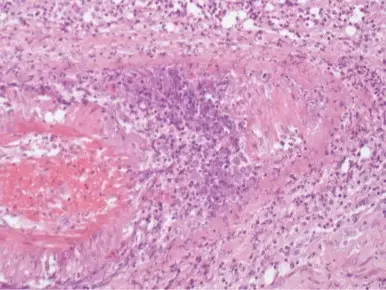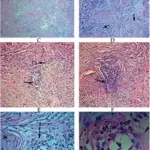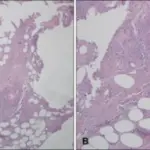Infectious vasculitis is inflammation of the walls of the blood vessels caused by direct infection, bacterial infection, and viral infection.
What is the Pathology of Infectious Vasculitis?
The pathology of infectious vasculitis is:
-Etiology: The cause of infectious vasculitis is a bacterial infection mostly aspergillus and the mucor species.
-Genes involved: NA.
-Pathogenesis: The sequence of events that lead to infectious vasculitis is triggered by immune complex deposition, antineutrophilic cytoplasmic antibodies, and also anti-endothelial cells antibodies.
-Morphology: NA.
-Histology: Infected vasculature.
How does Infectious Vasculitis Present?
Patients with infectious vasculitis typically affect men and children present at the age range of 50 years old. The symptoms, features, and clinical findings associated with infectious vasculitis include headache, fever, weight loss, fatigue, and general malaise.
How Infectious Vasculitis Diagnosed?
Infectious vasculitis is diagnosed complete blood count, erythrocyte sedimentation rate, liver function tests, chest radiography, urinalysis.
How is Infectious Vasculitis Treated?
Infectious vasculitis may be treated by corticosteroids and surgery.
What is the Prognosis of Infectious Vasculitis?
The prognosis of infectious vasculitis is good if treated properly and quickly.



